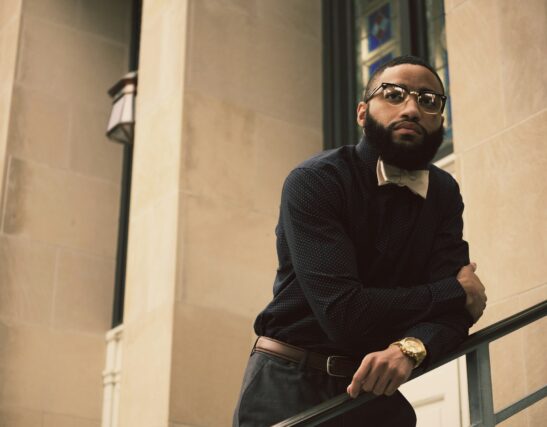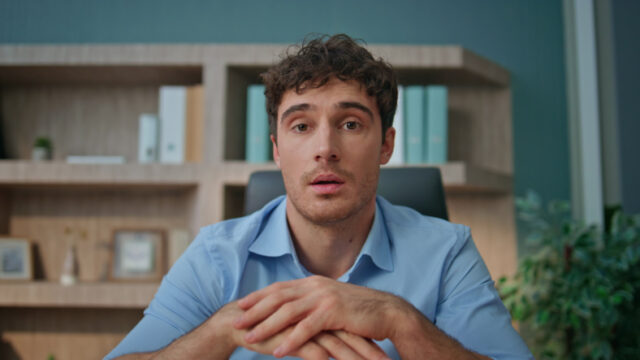Helping people is generally a good thing, but when you constantly play the hero, it can start working against you.

Always stepping in to fix everyone’s problems and take on responsibility for everyone else’s feelings and lives as a whole might seem like the right thing to do, but the longer it goes on, it can leave you feeling exhausted, unappreciated, and even resentful. If you find yourself always playing the hero, here’s why it’s time to step back.
1. You attract people who take advantage of you.

When you constantly rescue people, you start attracting those who love to be rescued. Instead of surrounding yourself with supportive, equal relationships, you might find that you’re always the one giving while other people just take and take and take… Some people will see your kindness as an opportunity to let you do all the hard work. It might not start as manipulation, but over time, you’ll notice a pattern. They lean on you for emotional support, financial help, or general life fixes, but when you need something? They’re nowhere to be found. Playing the hero makes it easy for users to latch onto you, draining your energy without giving anything back.
2. It stops people from learning to help themselves.

By always stepping in to fix things, you might actually be preventing people from learning how to solve their own problems. If they know you’ll always sort things out, why would they bother figuring it out themselves? Your need to help might be coming from a good place, but it could be holding them back. People grow through challenges, and sometimes they need to struggle a little to find their own strength. If you’re always there, smoothing things over, they’ll never develop the resilience they need. You’re not doing them any favours by taking on their responsibilities.
3. You end up exhausted and burnt out.

Being the hero all the time is exhausting. Constantly stepping in, fixing things, and being the ‘strong one’ drains your energy, leaving little for yourself. You might not realise it at first, but over time, you’ll start feeling emotionally and physically drained. It’s hard to pour from an empty cup. If you’re always prioritising other people’s problems over your own well-being, you’ll eventually hit a point where you can’t keep going. And when that happens, the people you’ve been helping won’t be the ones picking up the pieces — you will.
4. You create unrealistic expectations.

The more you help, the more people expect you to help. What starts as a one-time favour quickly becomes your job, and before you know it, people assume you’ll always be there to fix everything. The problem? If you suddenly stop, they’ll act like you’ve done something wrong. People get used to the level of support you provide, and when you try to set boundaries, they might react with disappointment or even guilt-tripping. By always playing the hero, you train people to rely on you instead of themselves, which only makes things harder in the long run.
5. You ignore your own needs.

When you’re focused on solving everyone else’s problems, your own needs tend to get pushed aside. You tell yourself you’ll deal with your issues later, but later never comes. There’s always another crisis, another person who needs help, and before you know it, you’ve neglected yourself completely. Ignoring your own needs isn’t noble, it’s damaging. Just because you’re capable of helping other people doesn’t mean you should do it at the expense of your own happiness and well-being. If you don’t prioritise yourself, no one else will.
6. It creates unhealthy relationship dynamics.

Relationships of all kinds should be built on balance. But when you’re always the one fixing, supporting, and rescuing, the balance is completely off. Instead of an equal partnership, the relationship becomes one-sided, with you doing all the emotional labour. Healthy relationships involve mutual support. If you’re always playing the hero, it might be time to ask yourself: who’s showing up for you in the same way? If the answer is no one, it’s a sign that something needs to change.
7. People might resent you without realising it.
 Source: Unsplash
Source: Unsplash It sounds strange, but sometimes, the people you help the most end up resenting you. When you always step in and take control, they might start feeling like they can’t do anything for themselves. Even though you’re trying to help, they might see it as interference or even a way of making them feel weak. Nobody likes feeling like they’re dependent on someone else. If you’re always the one fixing things, they might start to resent the fact that you’re always in the ‘strong’ role while they feel powerless. Over time, this can create tension rather than gratitude.
8. You might be avoiding your own problems.
 Source: Unsplash
Source: Unsplash Sometimes, constantly helping everyone else is a way to avoid dealing with your own issues. Focusing on someone else’s problems can be a great distraction from your own struggles, making it easy to avoid what’s really going on in your life. It’s easier to feel useful when you’re fixing something for someone else, but that doesn’t mean your own problems disappear. In fact, the longer you avoid them, the bigger they tend to get. Stepping back from hero mode gives you time to focus on what you actually need.
9. You feel guilty when you say no.

If the thought of saying “no” makes you feel guilty, that’s a sign you’ve been playing the hero for too long. You might worry that people will think you don’t care or that they’ll be disappointed if you don’t step in to help. But saying no isn’t selfish, it’s necessary. You’re not responsible for fixing everything, and people won’t stop valuing you just because you set boundaries. If someone reacts badly when you say no, that says more about them than it does about you.
10. Your worth isn’t tied to how much you help everyone else.

It’s easy to fall into the trap of believing that your value comes from what you do for other people. If you’re always praised for being helpful, supportive, and dependable, you might start feeling like that’s your entire identity. But you’re more than just what you can offer other people. Your worth isn’t based on how many problems you solve. You deserve to be valued for who you are, not just what you can do for everyone else.
11. Not every problem is yours to solve.

It’s natural to want to help, but not every problem is yours to fix. Some issues are beyond your control, and some people need to figure things out for themselves. Stepping back isn’t a sign that you don’t care; it’s a way of showing that you respect other people’s ability to handle their own lives. It’s okay to support people without taking full responsibility for their struggles. Sometimes, being there to listen is enough. You don’t have to carry the weight of the world on your shoulders.
12. Boundaries aren’t just important, they’re must-haves.

Setting boundaries isn’t a way to stop caring about everyone else, but it does help you stop overextending yourself. A lack of boundaries is what keeps you stuck in hero mode, constantly overcommitting and feeling drained. Boundaries protect your energy and your well-being. They help you say no when you need to, prioritise your own needs, and create healthier relationships. The more you set them, the easier it becomes to step out of the hero role.
13. Letting go of hero mode can improve your relationships.

When you stop taking on too much responsibility for everyone else, your relationships actually improve. Instead of being one-sided, they become more balanced and mutual. People start seeing you as an equal rather than someone who always has to save the day. Stepping back allows other people to step up. It gives them the space to grow, make mistakes, and learn from their experiences. It also frees you up to focus on relationships where you’re valued for who you are, not just what you do.
14. You deserve to put yourself first sometimes.

You’ve spent so much time looking after other people — when was the last time you looked after yourself? Constantly playing the hero can make you forget that your needs matter too. Taking a step back isn’t selfish, it’s self-preservation. It’s okay to prioritise your own happiness, well-being, and personal growth. You don’t have to save everyone. Letting go of hero mode doesn’t mean you stop being a good person — it just means you start being good to yourself, too.




